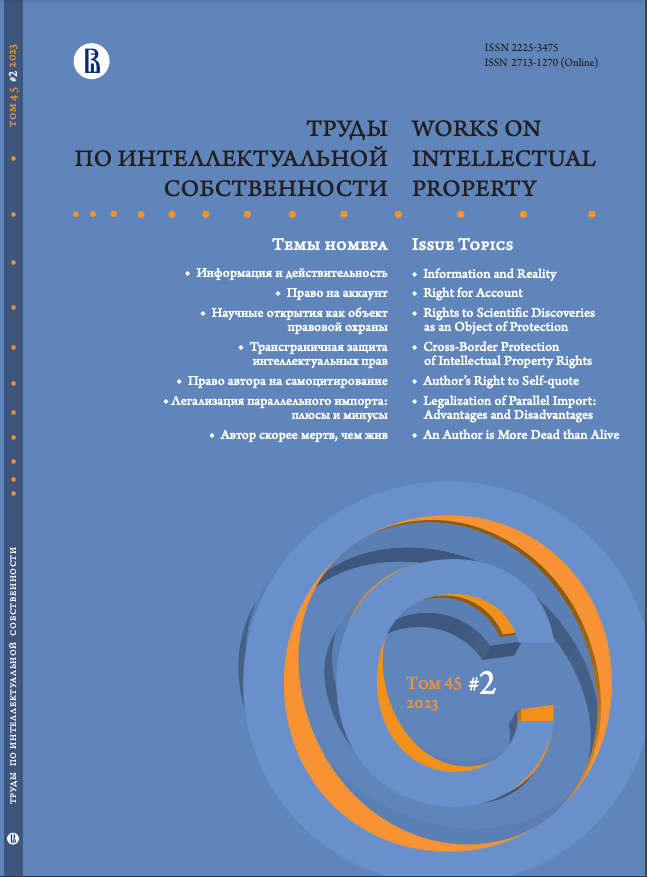ЛЕГАЛИЗАЦИЯ ПАРАЛЛЕЛЬНОГО ИМПОРТА В РОССИЙСКОЙ ФЕДЕРАЦИИ
Аннотация
В 2022 г. российский рынок покинуло более 1000 зарубежных компаний. Ответным шагом на беспрецедентное давление стран Запада стала легализации параллельного импорта товаров. Пойдя на такой шаг, государство стремилось поддержать отечественного предпринимателя, а также сохранить прежний уровень жизни потребителей, ассортимент товаров на российском рынке.
Если в теории параллельный импорт обладает широким кругом преимуществ, то на практике уже сейчас возникает ряд проблем, к которым должны приспосабливаться и импортеры, и потребители. В новой реальности эта тема требует глубокого анализа и тщательной проработки, поскольку параллельный импорт затрагивает не только экономическую сферу, но и сферу интеллектуальных прав, связанных с исключительными правами на товарные знаки. Начало разработки правовой основы для параллельного импорта, ежемесячное совершенствование этой основы и подстраивание имеющегося законодательства под возрастающее санкционное давление обосновывают актуальность данной темы. В статье исследованы проблемы, связанные с легализацией параллельного импорта, выявлены преимущества и основные риски его легализации, проанализировано значение законодательных новелл последних лет.

